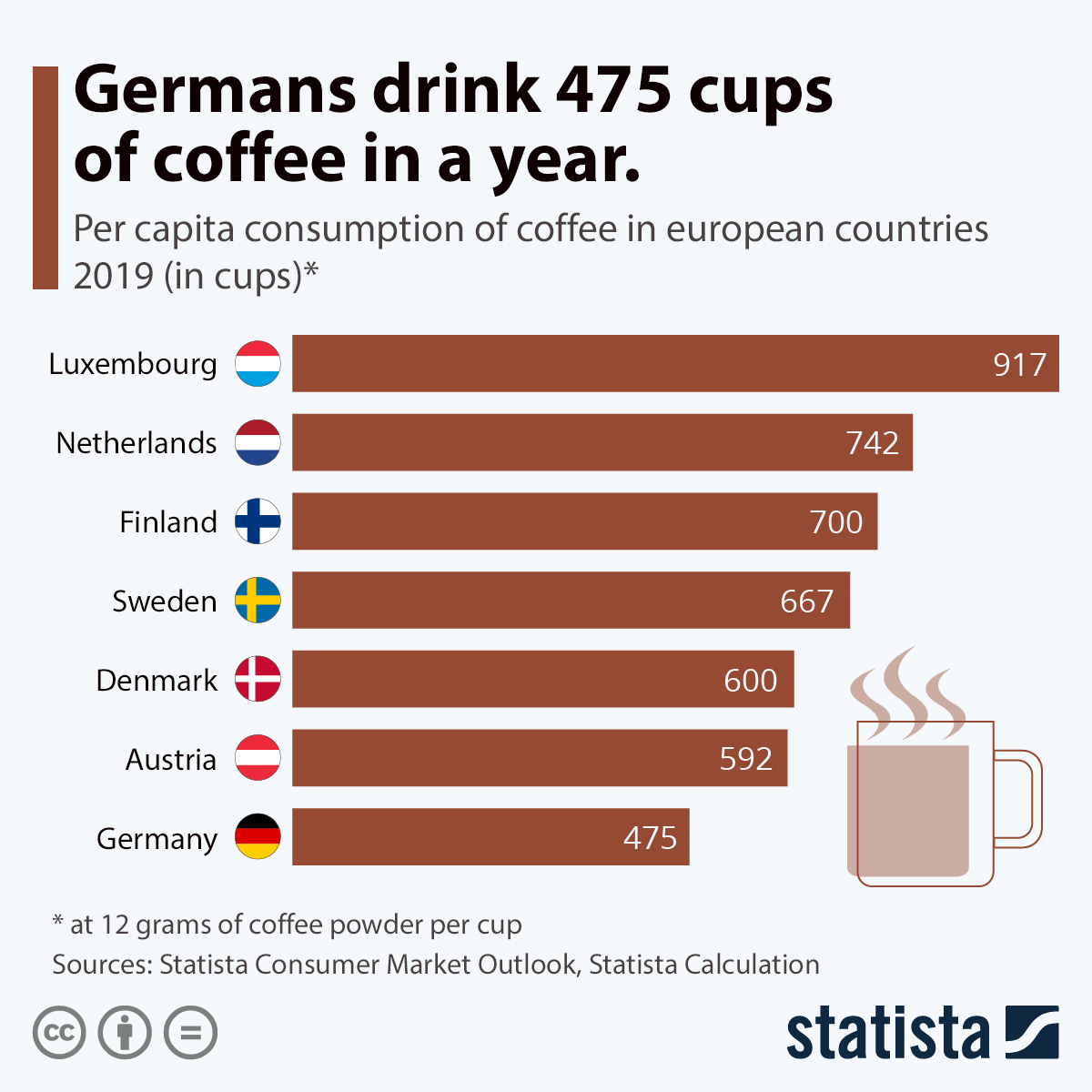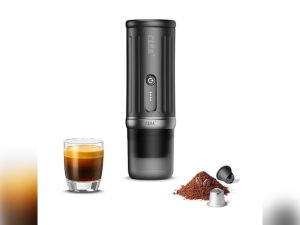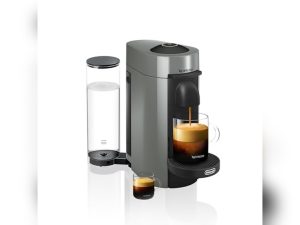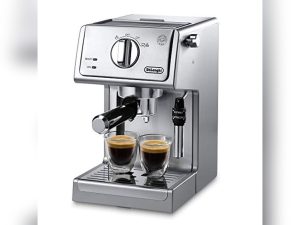Coffee is a popular drink worldwide. Many rely on it for a quick energy boost. But have you ever wondered how long for coffee to kick in after that first sip?
But how long does it take for coffee to kick in? Understanding the timing of coffee’s effects can help you plan your day better. When you drink coffee, caffeine enters your bloodstream, leading to increased alertness. The process isn’t instant.
It usually takes about 15 to 45 minutes to feel the effects. Factors like metabolism and food intake can influence this timing. Knowing this helps you make the most of your coffee breaks, ensuring you stay energized when needed. Let’s explore the details and factors affecting how long it takes for coffee to kick in.
The Science Of Caffeine
Coffee is a popular drink worldwide. Many people rely on it to wake up and stay alert. But how long does it take for coffee to kick in? The answer lies in the science of caffeine. Understanding how caffeine works can help you get the most out of your cup of joe.
Caffeine Absorption
Caffeine absorption begins almost immediately after consumption. Once you drink coffee, caffeine enters your bloodstream through the stomach and small intestine. This process can take about 15-45 minutes.
The speed of absorption can vary based on several factors:
- Food intake: Eating food with your coffee can slow absorption.
- Type of coffee: Different brewing methods and coffee types can affect caffeine content.
- Individual differences: Each person’s body absorbs caffeine at a different rate.
On average, you may start to feel the effects of caffeine within 15-30 minutes. These effects can last for several hours, depending on how quickly your body processes caffeine. This initial phase is when you feel most alert and energetic.
| Factor | Effect on Absorption |
|---|---|
| Empty stomach | Faster absorption |
| Full stomach | Slower absorption |
| High caffeine content | Stronger initial effects |
| Low caffeine content | Milder initial effects |
Metabolism Factors
The way your body processes caffeine is known as caffeine metabolism. Several factors influence this process:
- Genetics: Your genes play a big role in how you metabolize caffeine. Some people process caffeine quickly, while others do it slowly.
- Age: Metabolism generally slows with age, affecting how long caffeine stays in your system.
- Liver function: The liver breaks down caffeine. Liver health impacts this process.
- Smoking: Smokers tend to metabolize caffeine faster. Non-smokers process it more slowly.
- Medications: Certain medications can speed up or slow down caffeine metabolism.
On average, caffeine has a half-life of about 3-5 hours. This means that half of the caffeine you consume is processed in that time. The remaining caffeine continues to affect you for several more hours.
Here’s a simple breakdown of how long caffeine stays in the system:
| Time (hours) | Caffeine Remaining (%) |
|---|---|
| 0 | 100% |
| 3-5 | 50% |
| 6-10 | 25% |
| 12-20 | 12.5% |
Understanding these factors can help you manage your caffeine intake better. It can guide you on when to drink coffee and how much to consume.

Credit: myhive-offices.com
Timing Matters
Ever wondered why sometimes coffee seems to work instantly, and other times it takes forever to feel the effect? The timing of your coffee intake plays a crucial role. Understanding the right time to drink coffee can help you maximize its benefits and avoid unwanted side effects.
Best Times To Drink Coffee
Drinking coffee at the right time can boost your energy and productivity. Morning hours are the most popular time to drink coffee. But there’s more to it than just waking up and reaching for a cup.
Here are a few tips:
- Early morning: It’s best to drink coffee between 9:30 a.m. and 11:30 a.m. This is when your cortisol levels are lower, making caffeine more effective.
- Midday slump: Another good time is between 1:00 p.m. and 3:00 p.m. This can help you fight the afternoon fatigue.
- Avoid late evening: Drinking coffee late in the evening can disrupt your sleep. Try to avoid it after 5:00 p.m.
Timing your coffee intake right can make a big difference in how you feel throughout the day. Here’s a simple table to summarize:
| Time of Day | Recommendation |
|---|---|
| 6:00 a.m. – 9:00 a.m. | Avoid if possible (high cortisol) |
| 9:30 a.m. – 11:30 a.m. | Best time |
| 1:00 p.m. – 3:00 p.m. | Good time |
| After 5:00 p.m. | Avoid (disrupts sleep) |
Impact Of Food On Absorption
Food can significantly impact how quickly your body absorbs caffeine. Drinking coffee on an empty stomach might give you a quick jolt, but it can also lead to stomach discomfort.
Here are some factors to consider:
- With breakfast: Drinking coffee with a meal can slow down caffeine absorption. This might prolong its effects and reduce jitters.
- High-fat foods: Foods high in fat can slow down the digestion process, affecting how quickly you feel the caffeine kick in.
- High-carb foods: Carbohydrates can speed up the absorption process. You might feel the effects faster but they may not last as long.
Here’s a simple table to illustrate the impact:
| Food Type | Impact on Caffeine Absorption |
|---|---|
| Empty Stomach | Quick absorption, potential stomach discomfort |
| With Breakfast | Slower absorption, prolonged effects |
| High-Fat Foods | Slower absorption |
| High-Carb Foods | Faster absorption, shorter duration |
Understanding how food impacts caffeine absorption can help you tailor your coffee habits to match your needs. Whether you need a quick boost or prolonged alertness, timing and food choices matter.
Personal Variability
How long does it take for coffee to kick in? The answer is not the same for everyone. Personal variability plays a big role in how quickly you feel the effects of caffeine. Some people may feel a jolt of energy within 10 minutes, while others might take up to an hour. This is because of factors like genetics and how used you are to drinking coffee.
Genetic Factors
Genetics can influence how quickly coffee affects you. Some people have genes that make them break down caffeine faster or slower. If you metabolize caffeine quickly, you will feel the effects sooner. If your body takes longer to process caffeine, you might have to wait a bit more to feel that energy boost.
Here are some genetic factors that can impact caffeine metabolism:
- CYP1A2 enzyme: This enzyme breaks down caffeine in the liver. People with a more active CYP1A2 enzyme will process caffeine faster.
- AHR gene: This gene regulates the activity of the CYP1A2 enzyme. Variations in the AHR gene can make the enzyme more or less active.
- ADORA2A gene: This gene influences how sensitive you are to caffeine’s effects. Variations in this gene can make you more or less sensitive to caffeine.
Here is a table showing how genetic factors can affect caffeine metabolism:
| Genetic Factor | Effect on Caffeine Metabolism |
|---|---|
| CYP1A2 enzyme | Fast or slow breakdown of caffeine |
| AHR gene | Regulates activity of CYP1A2 enzyme |
| ADORA2A gene | Sensitivity to caffeine |
Tolerance Levels
Your tolerance to caffeine also impacts how quickly you feel its effects. If you drink coffee regularly, your body may become used to caffeine. This means you might need more coffee to feel the same energy boost as someone who does not drink it often.
Here are some factors that influence caffeine tolerance:
- Frequency of consumption: The more often you drink coffee, the higher your tolerance may be.
- Amount of caffeine: Drinking larger amounts can increase your tolerance over time.
- Individual sensitivity: Some people naturally have a higher or lower tolerance to caffeine.
Building a tolerance to caffeine can lead to needing more coffee to get the same effect. This can also affect how long it takes for the coffee to kick in. Here is a simple table to illustrate how tolerance levels can vary:
| Frequency of Coffee Consumption | Impact on Tolerance |
|---|---|
| Occasional | Low tolerance, quicker effect |
| Daily | Moderate tolerance, moderate effect |
| Multiple times a day | High tolerance, slower effect |
Understanding your genetic makeup and tolerance levels can help you predict how quickly coffee will kick in for you. Everyone is different, and these factors play a big role in how your body responds to caffeine.
Signs Of Coffee Kicking In
Many people rely on coffee to start their day. But how long does it take for coffee to kick in? And what are the signs that it’s working? After drinking coffee, you may notice various changes in your body and mind. These signs can help you know that the caffeine is starting to work. Let’s explore these signs in more detail.
Physical Sensations
When coffee starts to kick in, you might feel several physical sensations. These can vary from person to person but are usually easy to notice. Here are some common signs:
- Increased heart rate: You may feel your heart beating faster. This is a typical response to caffeine.
- Warmth or slight sweating: Your body temperature might rise a bit, making you feel warmer.
- Energy boost: You may feel a sudden rush of energy, making you feel more awake and alert.
- Reduced fatigue: The tired feeling you had before drinking coffee might fade away.
These physical sensations occur because caffeine affects your central nervous system. It stimulates your body, making you feel more energetic. Some people might also experience jitteriness or slight trembling if they consume too much caffeine. To better understand these changes, here is a simple table:
| Physical Sensation | Description |
|---|---|
| Increased heart rate | Faster heartbeat |
| Warmth or sweating | Feeling warmer, slight sweat |
| Energy boost | More energy and alertness |
| Reduced fatigue | Less tired |
Recognizing these signs can help you gauge how your body responds to coffee. This can be useful in managing your caffeine intake.
Mental Clarity
One of the most noticeable effects of coffee is improved mental clarity. After drinking coffee, many people find it easier to focus and think clearly. Here are some signs that your mental clarity is improving:
- Better focus: Tasks that seemed difficult might become easier to handle.
- Enhanced alertness: You may feel more aware of your surroundings and what you are doing.
- Improved mood: You might feel happier or more positive.
- Quicker reactions: Your response time to various tasks may improve.
Caffeine blocks adenosine, a chemical in your brain that makes you feel tired. This blockage can make you feel more awake and alert. Below is a brief overview of these mental changes:
| Mental Clarity Sign | Description |
|---|---|
| Better focus | Easier to handle tasks |
| Enhanced alertness | More aware of surroundings |
| Improved mood | Feeling happier |
| Quicker reactions | Faster response time |
Understanding these mental signs can help you make the most out of your coffee. Knowing how coffee affects your mind can guide you in using it effectively for work, study, or daily tasks.
Common Myths
Coffee is a beloved beverage around the world, known for its ability to wake us up and keep us going. But how long does it actually take for coffee to kick in? Many myths surround this question, leading to confusion. Let’s debunk some of these common myths and get to the truth about coffee’s effects.
Instant Energy
One common myth is that coffee provides instant energy. People often believe that the moment they take a sip, they will feel a burst of energy. This is not entirely true. While coffee can make you feel more alert, it takes some time to work.
The caffeine in coffee takes about 15 minutes to enter your bloodstream. It reaches its peak level in your blood within 30 to 60 minutes. At this point, you will feel the maximum effects of the caffeine.
Here’s a table to show how long it generally takes for coffee to kick in:
| Time after drinking | Effect |
|---|---|
| 0-15 minutes | Minimal effect, caffeine is entering bloodstream |
| 15-30 minutes | Increasing alertness |
| 30-60 minutes | Peak alertness, maximum caffeine effect |
So, while you may feel a bit more awake right after drinking coffee, the full effects take a little time. Keep this in mind next time you reach for your morning cup expecting an immediate jolt of energy.
Decaf Misconceptions
Another myth is that decaffeinated coffee has no caffeine at all. Many think that drinking decaf means you are not consuming any caffeine. This is not accurate.
Decaf coffee still contains some caffeine, though much less than regular coffee. On average, a cup of decaf coffee has about 2 to 5 milligrams of caffeine. In contrast, a regular cup of coffee has about 95 milligrams of caffeine.
Here is a comparison of caffeine content:
| Type of coffee | Average caffeine content (mg) |
|---|---|
| Regular coffee | 95 mg |
| Decaf coffee | 2-5 mg |
While decaf coffee won’t give you the same boost as regular coffee, it still has a small amount of caffeine. This means it can still have a mild effect on your alertness.
Understanding these common myths helps you make better choices about your coffee consumption. Knowing how coffee works can help you better manage your energy levels throughout the day.
Credit: www.businessinsider.com
Optimal Consumption
Drinking coffee is a daily routine for many. Understanding how long it takes for coffee to kick in and knowing the optimal consumption can help maximize its benefits. Discover the best ways to enjoy your coffee while avoiding unwanted side effects.
Dosage Recommendations
Finding the right coffee dosage is essential. Too little and you might not feel the effects. Too much and you risk overconsumption. Here are some guidelines to help you:
- General recommendation: 100-200 mg of caffeine per serving. This is about one 8-ounce cup of coffee.
- Daily limit: Up to 400 mg of caffeine per day for most adults. This equals around four 8-ounce cups.
- Sensitivity: Some people are more sensitive to caffeine. Start with a lower dose and increase if needed.
For a more precise understanding, here is a table showing the caffeine content in different types of coffee:
| Type of Coffee | Caffeine Content (mg) |
|---|---|
| Espresso (1 oz) | 63 mg |
| Brewed Coffee (8 oz) | 95 mg |
| Decaf Coffee (8 oz) | 2 mg |
Adjust your coffee intake based on these values to find your optimal consumption. Pay attention to how your body reacts and make changes accordingly.
Avoiding Jitters
Excessive caffeine intake can lead to jitters and discomfort. Here are some tips to help you avoid these side effects:
- Spread your intake: Instead of drinking large amounts at once, space out your coffee throughout the day.
- Avoid late consumption: Drinking coffee late in the day can affect your sleep. Try to have your last cup at least 6 hours before bedtime.
- Stay hydrated: Coffee is a diuretic. Drink water to stay hydrated and minimize jitters.
Here’s a quick guide to balance coffee consumption:
- Enjoy coffee with meals to slow down caffeine absorption.
- Avoid adding sugar or high-calorie creamers which can increase jitteriness.
- Pair your coffee with foods rich in magnesium to help reduce anxiety.
By following these tips, you can enjoy your coffee without the unpleasant side effects. Listen to your body and adjust your habits for a better coffee experience.
Long-term Effects
Many people wonder how long it takes for coffee to kick in. But it’s also important to consider the long-term effects of coffee on the body. Over time, regular coffee consumption can lead to various changes. These changes can affect both mental and physical health.
Caffeine Dependency
One of the most significant long-term effects of regular coffee consumption is caffeine dependency. Caffeine is a stimulant, and your body can get used to it. Here are some signs of caffeine dependency:
- Needing more coffee to feel awake
- Experiencing headaches without coffee
- Feeling irritable or anxious without your regular dose
Over time, your body builds a tolerance to caffeine. This means you need more coffee to get the same effect. This dependency can lead to withdrawal symptoms if you suddenly stop drinking coffee. Common withdrawal symptoms include:
- Headaches
- Fatigue
- Mood swings
Creating a balanced coffee routine can help manage dependency. You can try to limit your coffee intake to avoid these issues. For example, sticking to one or two cups a day can help. You can also try to drink coffee only in the morning. This way, you can enjoy the benefits without becoming too dependent.
Health Implications
Long-term coffee consumption has several health implications. Some are positive, while others can be negative. Here is a table showing some of these effects:
| Positive Effects | Negative Effects |
|---|---|
| Increased alertness | Anxiety |
| Improved mental performance | Insomnia |
| Reduced risk of certain diseases | Increased heart rate |
On the positive side, coffee can help improve focus and mental performance. Studies show that regular coffee drinkers have a lower risk of some diseases. These diseases include Parkinson’s and Alzheimer’s.
But there are also negative effects to consider. Drinking too much coffee can lead to increased anxiety and insomnia. High caffeine intake can also increase your heart rate. This can be risky for people with heart conditions. It’s crucial to monitor how much coffee you drink. Try to keep it within safe limits. This way, you can enjoy the benefits without the downsides.
Alternatives To Coffee
Have you ever wondered how long it takes for coffee to kick in? Many people rely on coffee for a quick energy boost. But sometimes, you might want to try something different. Let’s explore some alternatives to coffee that can still give you the energy you need.
Other Caffeinated Drinks
There are many other caffeinated drinks that can provide a similar energy boost as coffee. These drinks can be a refreshing change of pace.
Tea is one of the most popular alternatives. Here are some options:
- Black tea: Contains about 40-70 mg of caffeine per cup.
- Green tea: Contains around 20-45 mg of caffeine per cup.
- Oolong tea: Offers about 30-50 mg of caffeine per cup.
Energy drinks are another choice. They come in many flavors and often have added vitamins and minerals. Some popular ones include:
- Red Bull: Contains 80 mg of caffeine per 8.4 oz can.
- Monster: Offers 160 mg of caffeine per 16 oz can.
- Rockstar: Contains 160 mg of caffeine per 16 oz can.
Yerba Mate is a traditional South American drink. It has about 85 mg of caffeine per cup. It also contains antioxidants and nutrients.
Each drink has its own unique flavor and benefits. You can try different options to see which one you like best.
Natural Energy Boosters
If you prefer to avoid caffeine, there are natural energy boosters that can help you stay alert and focused.
Water is the simplest and most essential energy booster. Dehydration can make you feel tired. Drinking plenty of water keeps you hydrated and energized.
Fruits and vegetables are packed with vitamins and minerals. Some of the best options for energy include:
- Bananas: High in potassium, which helps maintain energy levels.
- Oranges: Rich in vitamin C, which can reduce fatigue.
- Spinach: Contains iron, which helps carry oxygen to your cells.
Nuts and seeds are great for a quick energy boost. They provide protein, healthy fats, and fiber. Some good choices are:
- Almonds: High in protein and healthy fats.
- Chia seeds: Packed with fiber and omega-3 fatty acids.
- Walnuts: Provide a good mix of protein, fat, and fiber.
Exercise is another effective way to boost your energy. Even a short walk can increase your energy levels and improve your mood.
These natural options can help you stay energized throughout the day without relying on caffeine.

Credit: cafely.com
Frequently Asked Questions
How Long Does It Take For A Cup Of Coffee To Kick In?
A cup of coffee typically kicks in within 15 to 30 minutes. The caffeine reaches peak levels in your bloodstream around 45 minutes after consumption.
What Is The 90 Minute Rule For Coffee?
The 90-minute rule for coffee suggests drinking coffee 90 minutes after waking. This maximizes alertness and minimizes dependence.
Why Wait 90 Minutes Before Caffeine?
Wait 90 minutes before caffeine to avoid interfering with your body’s natural cortisol production. This helps maintain balanced energy levels.
How Long Does It Take For Coffee To Make You Feel Awake?
Coffee typically takes 10 to 20 minutes to make you feel awake. Maximum alertness occurs around 30 to 60 minutes after consumption.
Conclusion
Feeling the effects of coffee varies for everyone. Typically, it takes about 30 minutes to feel its impact. Factors like metabolism, age, and sensitivity influence this. Knowing when coffee kicks in helps plan your day better. Enjoy your coffee moments and stay energized.
For many, coffee is more than a drink; it’s a ritual. Understanding its timing can enhance your experience. So, savor each sip and let the caffeine work its magic.








